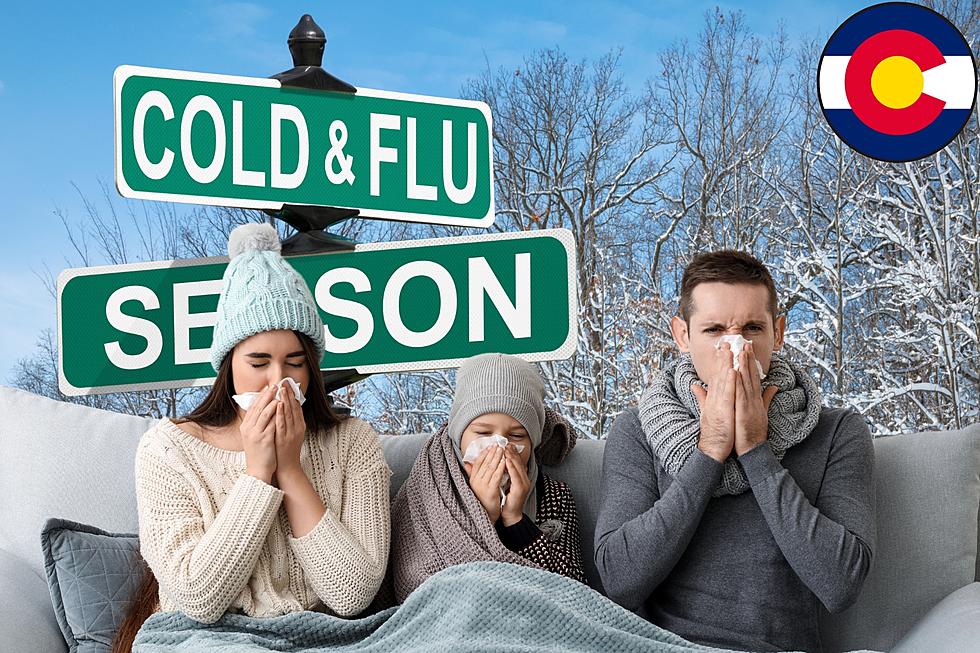
11 Illnesses Making Their Way Through Colorado This Winter
It's cold and flu season in Colorado, and the winter of 2024 has brought us eleven illnesses that are making their way through the Centennial State this season.
Besides COVID-19, ten other winter viruses have taken hold in Colorado that may cause you, or someone in your family, to see a doctor for treatment. Keep going to learn more about eleven illnesses you'll want to watch out for between now and the end of winter.

Winter Illnesses in Colorado
Winter illness in Colorado can start showing up as early as October and stay with us through March. Big swings in temperature like the ones we have seen this winter can cause spikes in respiratory illnesses, flu, and even COVID-19.
Most Common Winter Illnesses in Colorado
This winter, the Colorado Department of Health is reporting a rise in cases of COVID-19, the flu, and the RSV virus. These illnesses usually cause the highest number of hospitalizations in Masa County during winter.
The Colorado Department of Public Health and Environment reported hospitalizations with flu for the week of January 6th at 278 people.
Tips For Staying Healthy
The Mayo Clinic offers seven tips to help Coloradans avoid getting sick this winter.
- Stay Hydrated
- Reduce Stress Levels
- Get Plenty of Sleep
- Dress Warmly
- Limit Time in the Cold
- Exercise
- Wash Your Hands
Keep reading to take a closer look at the eleven illnesses affecting Colorado the most this winter in the gallery below.
11 Illnesses Making Their Way Through Colorado
Gallery Credit: Wesley Adams
LOOK: New Covid Variant in Colorado Has Bizarre New Symptoms
Gallery Credit: Wesley Adams
MORE: Answers to 25 common COVID-19 vaccine questions
Gallery Credit: Stephanie Parker
